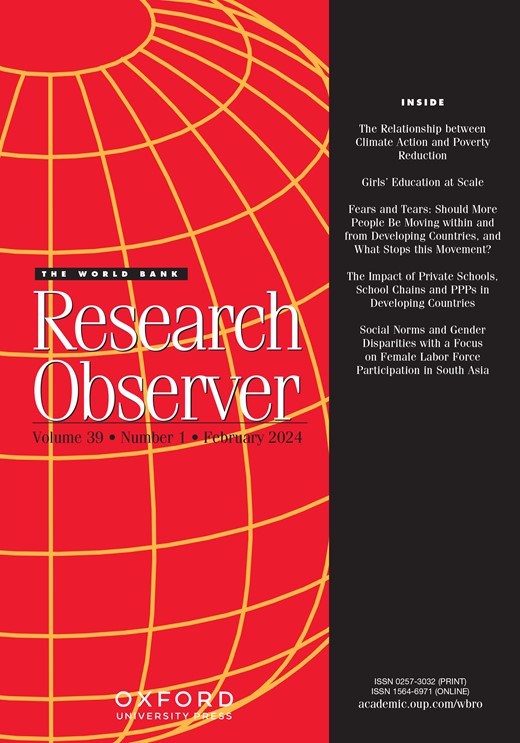从外部支持政策改革
IF 3.3
1区 经济学
Q1 DEVELOPMENT STUDIES
引用次数: 7
摘要
如果各国希望繁荣和实现可持续发展,健全的经济和社会政策是重要的。然而,政策制定者选择和实施好的政策是远远不能保证的,这为外部政策支持提供了一个理由。事实上,许多组织正在支持受援国的政策改革进程。本研究通过关注支持的四个维度:有条件融资、政策对话、技术证据和政治制度,调查了支持政策改革的局限性和机遇。对文献的回顾得出了四个结论。首先,如果接受方没有承诺,有条件融资不太可能引发政策改革。其次,当外部行为者在政策对话桌上获得一席之地时,重要的是要发现(并影响)政策制定者所持有的信念。第三,外部各方应就其政策建议的成本、收益和有效性提出可靠的证据。最后,在不考虑一般均衡效应的情况下支持政治制度变革可能会适得其反。最后,对该领域今后的研究方向进行了展望。本文章由计算机程序翻译,如有差异,请以英文原文为准。
Supporting Policy Reform from the Outside
Sound economic and social policies are important if countries wish to prosper and achieve sustainable development. It is far from guaranteed, however, that policymakers select and implement good policies, which provides a rationale for external policy support. Indeed, many organizations are engaged in supporting policy reform processes in recipient countries. This study investigates the limits and opportunities of supporting policy reform by focusing on four dimensions of support: conditional financing, policy dialogue, technical evidence and political institutions. Four findings follow from a review of the literature. First, without commitment on the recipient side, conditional financing is unlikely to induce policy reform. Second, when external actors acquire a seat at the policy dialogue table, it is important to detect (and influence) the beliefs policymakers hold. Third, outside parties should bring sound evidence to the table about the costs, benefits, and effectiveness of their policy proposals. Finally, supporting changes in political institutions without considering general equilibrium effects can be counterproductive. The study concludes with a discussion and some avenues for future research in this field.
求助全文
通过发布文献求助,成功后即可免费获取论文全文。
去求助
来源期刊

World Bank Research Observer
Multiple-
CiteScore
12.60
自引率
1.20%
发文量
8
期刊介绍:
The World Bank Journals, including the Research Observer, boast the largest circulation among economics titles. The Research Observer is distributed freely to over 9,100 subscribers in non-OECD countries. Geared towards informing nonspecialist readers about research within and outside the Bank, it covers areas of economics relevant for development policy. Intended for policymakers, project officers, journalists, and educators, its surveys and overviews require only minimal background in economic analysis. Articles are not sent to referees but are assessed and approved by the Editorial Board, including distinguished economists from outside the Bank. The Observer has around 1,500 subscribers in OECD countries and nearly 10,000 subscribers in developing countries.
 求助内容:
求助内容: 应助结果提醒方式:
应助结果提醒方式:


